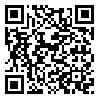BibTeX | RIS | EndNote | Medlars | ProCite | Reference Manager | RefWorks
Send citation to:
URL: http://rjms.iums.ac.ir/article-1-2547-en.html
2- Isfahan University of Medical Sciences
3- Tarbiat Modares University
Background: Patient empowerment is considered as an effective paradigm in self- care education and behavior change in diabetes care. This study examined the impact of pre, immediately and a-3 months, empowerment –based diabetes education in promoting self-care behaviors in type 2 diabetic patients in Isfahan city.
Methods : This randomized control trial enrolled 140 adults with type 2 diabetes. Baseline, immediately and 3 –months assessments measured self-care behaviors. In intervention group, participants received educational plan based on empowerment theory and control group received current education plan in the diabetes center. Patients in intervention group attended in five groups with 14 patients during 2 months intervention with group problem solving and peer support strategies based on empowerment theory constructs. Each scale was performed based on study goals in post-tests separately. Collected data was analyzed using SSPSS software 11.5 version with statistical tests.
Results: The two groups did not differ statistically in the demographic variations (p>0.05). Self-care difference was statistically significant in the case group however in the control group and between the two compared groups it was not significant (p>0.05). Self-care behaviors in total and some subscales such as nutrition (p=0.03), and physical activity (p>0.001) showed significant association in intervention group. Self-monitoring, adherence to treatment and inspection of foot had significant association in intervention group (p>0.001), but there was no significant association within two groups (p>0.05). Smoking had a significant association in intervention group (p=0.03).
Conclusions: Findings suggest that an empowerment based educational program is promising for improving and maintaining certain self-care subscales.





